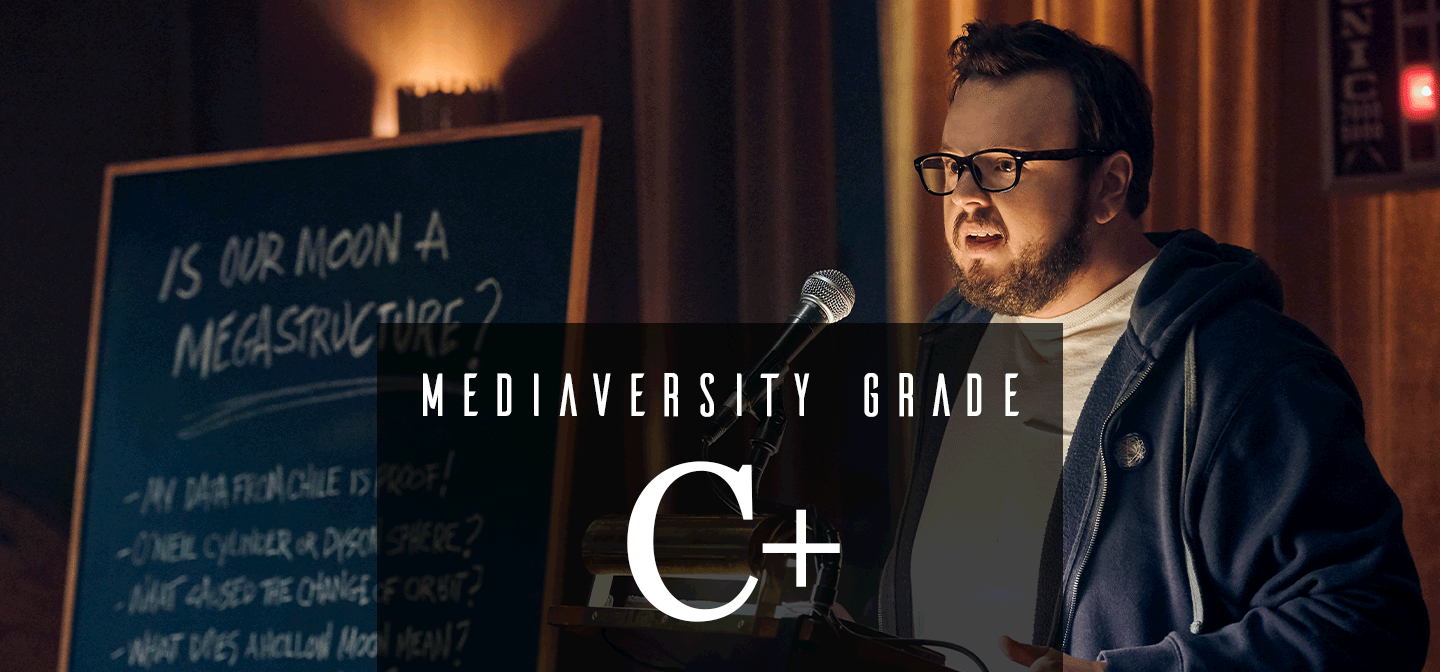3 Body Problem
“3 Body Problem’s most prominent deviation from the source material adds inclusion, which pays off creatively and commercially.”
Title: 3 Body Problem
Episodes Reviewed: Season 1
Creators: David Benioff 👨🏼🇺🇸, D.B. Weiss 👨🏼🇺🇸, and Alexander Woo 👨🏻🇺🇸
Writers: David Benioff 👨🏼🇺🇸 (1 ep), D.B. Weiss 👨🏼🇺🇸 (1 ep), Alexander Woo 👨🏻🇺🇸 (1 ep), Madhuri Shekar 👩🏽🇺🇸 (1 ep), and Rose Cartwright 👩🏼🇺🇸 (1 ep), based on the books by Cixin Liu 👨🏻🇨🇳
Reviewed by Weiting 👩🏻🇨🇳🇺🇸
—SPOILERS AHEAD—
Technical: 4/5
Premiering its pilot at SXSW earlier this month, 3 Body Problem is David Benioff and D.B. Weiss' eagerly anticipated follow-up to the historic series, Game of Thrones. Adapted from Chinese author Cixin Liu's sci-fi saga of the same name, the new Netflix show generally stays true to its source material's plot points. But Benioff and Weiss, along with co-creator Alexander Woo, liberally add characters of different ethnicities and nationalities to the book's central Chinese cast. The result is a more universal viewing experience for the streaming platform’s worldwide subscribers.
A non-linear narrative propels the series, switching back and forth between present-day London and 1960s/70s China during the Cultural Revolution. It starts with a heart-wrenching scene as astrophysicist Wenjie Ye (Zine Tseng) witnesses her father getting beaten to death by the Red Guards during a public persecution of scholars. We later see an older version of her (played by Rosalind Chao) mourning her daughter Vera Ye (Vedette Lim), a physicist who kills herself. Hardboiled detective Da Shi, now a Manchester-raised Londoner named Clarence (Benedict Wong) on the show, investigates Vera's death, as well the mysterious suicides by other pioneering physicists. At the same time, her funeral reunites five of her former classmates at Oxford, who go on to have their own character arcs and relationships with one another.
The past blends with the present as an alternate, virtual reality gets thrown into the mix, challenging our notions of time and space. Widely known for their rousing choreography of large-scale action in Game of Thrones, Benioff and Weiss continue to build crowd-pleasing spectacles in 3 Body Problem. The series' vivid depiction of thousands of Cultural Revolution fanatics shouting slogans is simultaneously brutal and sobering to watch, and its CGI creation of a golden dome power plant stands out among its visual feasts.
However, given the novel's trailblazing and imaginative uses of cutting-edge astrophysical theories, the TV adaptation feels dumbed down in favor of binge-watching fun. Its grandeur, albeit entertaining, doesn't quite compare to Liu's succinct yet profound storytelling that manifests the depths of the human psyche.
Gender: 4.75/5
Does it pass the Bechdel Test? YES
Although co-created by three men, 3 Body Problem's main characters—most of whom are women of color working in STEM fields—thankfully have female writers Madhuri Shekar and Rose Cartwright behind the scenes to ensure they aren’t being written by an all-male writers room.
The book's larger-than-life female character of Wenjie comes to the screen largely intact, portrayed skillfully by a fierce Tseng and a haunted Chao. But interestingly, male protagonist Wang Miao gets split into Vera's five Oxford students in the TV adaptation. Among them, best-friend duo astrophysicist Jin (Jess Hong) and nanotech entrepreneur Auggie (Eiza González) have the most screen time and the deepest character arcs, and their areas of expertise push the hefty narrative forward.
The women do still exist in a predominantly male STEM environment—for example, of the Oxford 5, three are men and two are women. But Wenjie, Jin, and Auggie’s outsized importance to the story, and the easy respect for their competence by male peers, gives an empowering onscreen example of women working in science.
Race: 5/5
With Chinese American writer-producer Woo and Hong Kong director Derek Tsang on board, Benioff and Weiss put together a powerhouse team experienced in subverting genre tropes of both sci-fi and melodrama. Known for his ability to engage with sensitive political subjects in the context of modern China, Tsang also proves himself to be a master of neo-noir film language. In the show's gritty crime-thriller segments, Tsang and British Chinese actor Wong's reinvention of the novel's fan favorite, Da Shi, appears as the more reserved and introspective Clarence, granting Wong more room to convey nuance, tension, and humor in the role.
Besides these Asian talents central to the series both on and off screen, Mexican actor González plays the peerless Auggie while physicist Saul (Jovan Adepo), also among the "Oxford 5," represents Black excellence. Repeatedly referred to as the smartest among them, we soon realize that Saul, played by Black English-American actor Adepo, gets to experiment with more than just an idealized image of a “model minority." We meet Saul as his career in physics research gets obliterated by the series' mystifying enemies. He becomes increasingly disillusioned and discouraged by the future, both for his field and for himself. Adepo's layered, internal battle between nihilism and self-doubt goes beyond surface-level representation, bringing out a Black character who feels unique and real, if a bit tokenized among a mostly light-skinned cast.
Disability: 3/5
Among the Oxford 5, Will (Alex Sharp), a high school physics teacher, is diagnosed with stage 4 pancreatic cancer at the start of the season. While his illness increasingly saps his physical strength, Will's emotional depth never flags as he grapples with his undying love for Jin. But notably, he still falls into a narrative cliche: a character with a disability who willingly becomes a martyred saint, his existence (or lack thereof) serving to realize the potential of nondisabled characters. While Will's romantic yearning for Jin makes for compelling drama, it would've been better for disability representation if we got to know Will's personal, perhaps professional motivations for making the ultimate sacrifice to save humanity—other than that he's "dying anyway" and wants to help nondisabled love interest Jin succeed as project leader.
Bonus for Age: +0.75
In current-time London, an older Wenjie retreats to the background as a wise counselor with a secret. At 66 years old (at the time of this review), Chinese American veteran actor Chao gives the supporting character an elegant, veiled presence—a seasoned foil to Tseng's raw depiction of the younger Wenjie. Considering how rare it is for Asian American women over 60 to get such meaty roles, the series does justice to both Chao and her character.
In addition, Liam Cunningham plays Clarence’s hotheaded boss, Thomas Wade. At 62 years old, White Irish male actor Cunningham has enjoyed more on-screen opportunities than Chao—including as the former smuggler Ser Davos Seaworth on Game of Thrones—but it’s still positive to see actors later in their careers portray complicated humans who fall outside of ageist stereotypes.
Bonus for LGBTQ: +0.25
Clarence has two brief scenes at home with his son, Reg (Aidan Cheng). But even with limited screen time, Reg reveals his own ambitions about becoming an entrepreneur, while their prickly conversations hint at a difficult father-son relationship. Clarence and Reg also casually mention Reg's boyfriend by name (Ally), their same-sex relationship normalized and glossed over.
Mediaversity Grade: A- 4.44/5
While deciding what to keep and what to rework from the source material, 3 Body Problem's most prominent deviation adds original, multifaceted female characters, Black and Mexican characters, and complex adults over 60 years old. It's a bold move that pays off creatively and commercially, and one that uplifts actors (both veteran and newcomers) who have always deserved prominent spots on mainstream television.




